
0
+
Google Reviews

0
+
4.1 (2091 Ratings)
Advanced Java refers to an extension of the Java programming language that builds upon the fundamentals of core Java. It includes a set of powerful features and libraries designed to facilitate the development of complex and enterprise-level applications offering a wide range of tools, libraries, and frameworks to streamline development and enhance performance, security, and scalability


Curriculum Designed by Experts
• Review of object-oriented principles in Java.
• In-depth exploration of inheritance, polymorphism, and encapsulation.
• Advanced topics like abstract classes, interfaces, and inner classes.
• Comprehensive study of collections in Java (List, Set, Map).
• Implementations and use cases of different collection types.
• Iterators and enhancements in Java Collections Framework.
• Advanced exception handling techniques.
• Custom exceptions and exception chaining.
• Logging using frameworks like Log4j.
• Understanding multithreading in Java.
• Synchronization and thread safety.
• Advanced topics like Java concurrency utilities (java.util.concurrent).
• Input and output streams.
• File handling and file I/O.
• Introduction to Java NIO (New I/O) for non-blocking I/O.
• Network fundamentals.
• Socket programming in Java.
• Building client-server applications.
• Introduction to JDBC and database fundamentals.
• Performing database operations in Java.
• Connection pooling and data source management.
• Overview of Java EE and its components.
• Servlets and JavaServer Pages (JSP).
• Enterprise JavaBeans (EJB) and Java Persistence API (JPA).
• Introduction to the Spring Framework.
• Dependency injection and inversion of control.
• AOP (Aspect-Oriented Programming) with Spring.
• Object-relational mapping (ORM) with Hibernate.
• Configuration and mapping files.
• Hibernate Query Language (HQL) and criteria queries.
• Introduction to web services and SOAP.
• Developing and consuming web services in Java.
• RESTful web services with JAX-RS.
• Introduction to design patterns (e.g., Singleton, Factory, Observer).
• Applying design patterns in Java applications.
• Design patterns for enterprise-level development.
• Security and encryption in Java.
• Java memory management and performance optimization.
• Introduction to Java 9+ features
• A practical project that incorporates advanced Java concepts learned during the course.
Mastering "ADVANCED JAVA" unlocks skills in JSP, Servlets, Hibernate, Spring, and Web Services. These in-demand technologies drive web and enterprise application development. Enroll now to enhance your coding, debugging, and deployment expertise. Boost your career with top-notch Java proficiency!
Unlock endless possibilities with ADVANCED JAVA Course Training! Master cutting-edge Java skills to excel in careers like software development, web application creation, or enterprise solutions. Enroll now to boost your expertise and stay ahead in today’s competitive tech industry with in-demand Java proficiency.
Embrace the future with Cloud Adoption for ADVANCED JAVA Course Training! Learn to build, deploy, and manage Java applications seamlessly on the cloud. Stay relevant in the evolving tech landscape, enhance scalability, and unlock new career heights. Enroll now to lead innovation with cloud-integrated Java expertise.
Enhance Scalability and Flexibility with ADVANCED JAVA Course Training! Gain expertise to create adaptable, high-performance applications that grow with user demands. Stay competitive in dynamic tech environments. Enroll now to master Java's power and drive success with scalable, flexible solutions.
Master Cost Management with ADVANCED JAVA Course Training! Learn to build efficient, cost-effective applications that optimize resource usage. Gain skills to reduce development and maintenance expenses while delivering high-quality solutions. Enroll now to enhance your expertise and drive smarter, budget-friendly innovations.
Boost Security and Compliance with ADVANCED JAVA Course Training! Learn to create secure, regulation-compliant applications for modern enterprises. Gain expertise in safeguarding data, ensuring legal standards, and fostering confidence in your software. Enroll now to become a Java professional equipped for secure innovation.
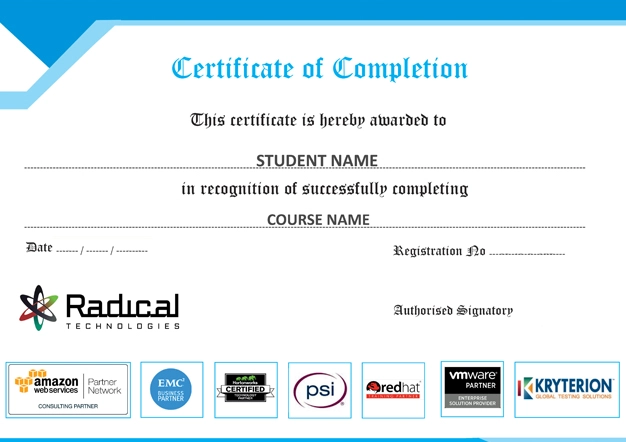


At Radical Technologies, we are committed to your success beyond the classroom. Our 100% Job Assistance program ensures that you are not only equipped with industry-relevant skills but also guided through the job placement process. With personalized resume building, interview preparation, and access to our extensive network of hiring partners, we help you take the next step confidently into your IT career. Join us and let your journey to a successful future begin with the right support.
At Radical Technologies, we ensure you’re ready to shine in any interview. Our comprehensive Interview Preparation program includes mock interviews, expert feedback, and tailored coaching sessions to build your confidence. Learn how to effectively communicate your skills, handle technical questions, and make a lasting impression on potential employers. With our guidance, you’ll walk into your interviews prepared and poised for success.
At Radical Technologies, we believe that a strong professional profile is key to standing out in the competitive IT industry. Our Profile Building services are designed to highlight your unique skills and experiences, crafting a resume and LinkedIn profile that resonate with employers. From tailored advice on showcasing your strengths to tips on optimizing your online presence, we provide the tools you need to make a lasting impression. Let us help you build a profile that opens doors to your dream career.

Infrastructure Provisioning
Implementing automated infrastructure provisioning and configuration management using Ansible. This may include setting up servers, networking devices, and other infrastructure components using playbooks and roles.

Applications Deployment
Automating the deployment and orchestration of applications across development, testing, and production environments. This could involve deploying web servers, databases. middleware, and other application components using Ansible

Continuous Integration
Integrating Ansible into CI/CD pipelines to automate software. build, test, and deployment processes. This may include automating the creation of build artifacts, running tests, and deploying applications to various environments.

The Advanced Java Training in Bengaluru at Radical Technologies helped me land a great job. The course gave me a solid foundation in Java programming and prepared me for industry challenges.
Radical Technologies is the best Advanced Java Institute in Bengaluru. The course structure, expert instructors, and hands-on practice made me proficient in Java in no time.
I attended Advanced Java Classes in Bengaluru at Radical Technologies and was impressed by the high-quality instruction and course materials. It’s one of the best institutes for Java training.
The Advanced Java Certification in Bengaluru gave me the credentials I needed to further my career. I feel confident applying my skills in Java development after completing this training.
Radical Technologies' Advanced Java Course in Bengaluru helped me understand advanced concepts like RESTful APIs, Hibernate, and Spring. It’s one of the best learning experiences I’ve had.
The Advanced Java Online Certification in Bengaluru provided by Radical Technologies is a great way to validate your skills. I learned a lot about Java frameworks and database management during the course.
After completing the Advanced Java Online Training in Bengaluru, I gained the confidence to handle complex Java projects. The course helped me improve my problem-solving skills.
I opted for the Advanced Java Online Course in Bengaluru and was impressed with the content and the interactive sessions. The instructors went the extra mile to ensure every concept was well understood.
The Advanced Java Online Classes in Bengaluru helped me gain a thorough understanding of Java programming at my own pace. The flexibility of online learning is perfect for anyone with a busy schedule.
Radical Technologies offers outstanding Advanced Java Corporate Training in Bengaluru. The practical approach and problem-solving sessions ensured that I learned Java development techniques quickly.
The Advanced Java Training in Bengaluru provided by Radical Technologies is one of the best. The course structure was easy to follow, and the trainers provided great real-life examples to explain key concepts.
At Radical Technologies, the Advanced Java Institute in Bengaluru helped me improve my coding skills significantly. The trainers were very experienced, and the course material was updated with the latest trends in Java.
The Advanced Java Classes in Bengaluru were fantastic! I gained a deeper understanding of object-oriented programming and advanced Java techniques that I can now apply in my job.
I highly recommend Radical Technologies for anyone seeking Advanced Java Certification in Bengaluru. The hands-on approach made it easy for me to transition from theory to practical implementation.
Radical Technologies’ Advanced Java Course in Bengaluru provided me with comprehensive knowledge of Java frameworks and APIs. I now feel ready to tackle real-world Java development challenges.
After completing the Advanced Java Online Certification in Bengaluru with Radical Technologies, I feel more confident in my Java programming skills. This course was a game-changer for my career.
The Advanced Java Online Training in Bengaluru exceeded my expectations. The instructors explained complex concepts with clarity, and the live coding sessions helped me implement Java applications on my own.
Radical Technologies’ Advanced Java Online Course in Bengaluru is highly recommended for anyone looking to boost their Java skills. The instructors are highly knowledgeable, and the course materials are well-structured.
I opted for the Advanced Java Online Classes in Bengaluru, and the experience was exceptional. The flexibility of online learning combined with the quality of content made this course worth every penny.
The Advanced Java Corporate Training in Bengaluru provided by Radical Technologies was top-notch. It was tailored to meet the needs of our team, and the trainers ensured that we got the most out of the course.
Radical Technologies offers the best Advanced Java Training in Bengaluru. The interactive sessions and personalized attention helped me understand advanced Java topics like multi-threading and database connectivity in depth.
As a professional seeking to enhance my skills, I found the Advanced Java Institute in Bengaluru to be the perfect place for growth. The courses are structured in a way that makes learning both challenging and rewarding.
The Advanced Java Classes in Bengaluru at Radical Technologies were incredibly informative. The instructors made the most complex concepts easy to understand, and the real-time coding practices were extremely helpful.
Thanks to the Advanced Java Certification in Bengaluru from Radical Technologies, I was able to advance my career. The practical sessions were invaluable, and I gained hands-on experience in real-world Java projects.
I enrolled in the Advanced Java Course in Bengaluru at Radical Technologies and was thoroughly impressed with the depth of knowledge provided. The course content covered all essential topics and helped me gain confidence in working on complex Java applications.









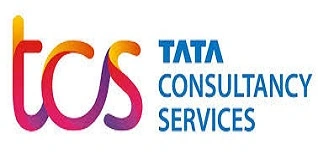


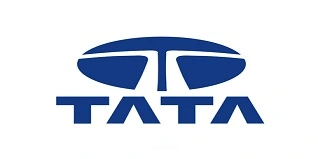

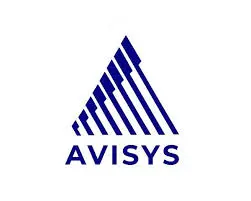
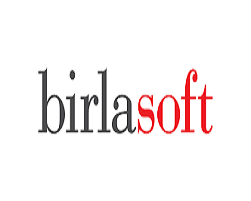




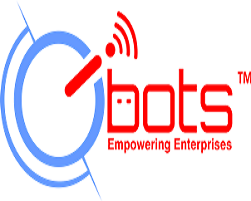
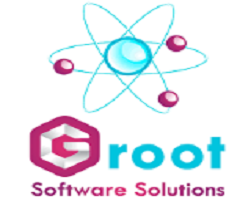

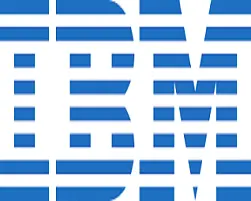
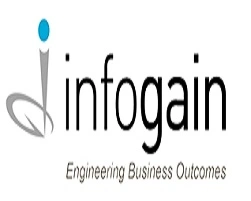
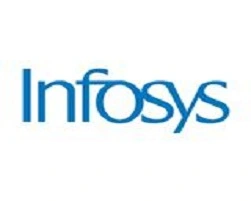
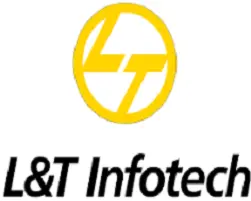
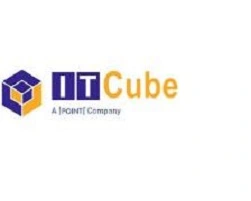
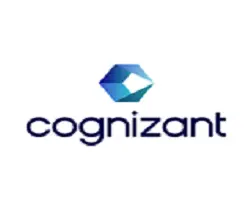

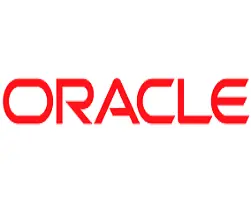

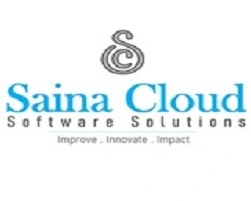





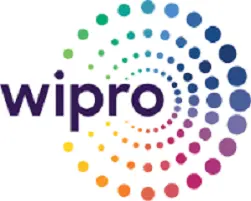
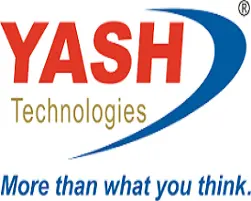
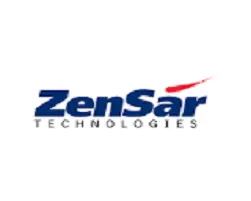

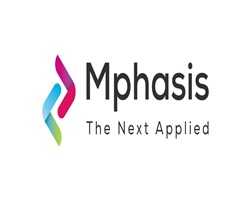
Advanced Java refers to the extended version of Core Java, focusing on technologies such as Servlets, JSP, JDBC, and frameworks like Spring and Hibernate. While Core Java covers the basic principles of Java programming, Advanced Java is used to develop web, enterprise, and network-based applications. It adds specialized APIs and tools for building more complex solutions.
Java Servlets are server-side programs used to handle client requests and generate dynamic web content. They extend the capabilities of web servers by processing HTTP requests and returning responses. Servlets run within a container (like Apache Tomcat) and are commonly used for tasks such as form processing and session management.
JavaServer Pages (JSP) allow embedding Java code into HTML pages for dynamic content generation. Unlike Servlets, which require Java code in the servlet class, JSP simplifies web development by separating the presentation layer from business logic. JSP can be compiled into Servlets for faster execution.
JDBC is an API that allows Java applications to connect to databases and execute SQL queries. It provides methods for inserting, updating, deleting, and retrieving data from databases. JDBC supports a variety of relational database management systems, making it a crucial tool for data-driven applications.
Enterprise JavaBeans (EJB) are server-side components used to encapsulate business logic in Java EE applications. They provide features like transaction management, security, and concurrency control. EJB is ideal for building scalable, distributed, and secure enterprise applications such as banking and e-commerce systems.
Dependency Injection (DI) is a design pattern used in the Spring Framework to promote loose coupling between components. Spring’s DI mechanism allows objects to be injected into other objects rather than having them create their dependencies. This simplifies testing, maintenance, and flexibility of applications.
Hibernate is an Object-Relational Mapping (ORM) framework that simplifies database interactions by mapping Java objects to database tables. It eliminates the need for writing complex SQL queries, allowing developers to interact with databases using high-level Java code. Hibernate automatically handles object-relational mapping, caching, and transaction management.
Java RMI allows Java programs to invoke methods on remote objects, facilitating distributed computing. It enables communication between applications on different machines across a network. RMI abstracts the complexities of network communication and provides a simple API for remote method calls.
Spring Boot is a framework that simplifies Java application development by providing pre-configured templates, automatic dependency management, and embedded web servers. It eliminates the need for complex XML configuration and allows rapid application development, making it ideal for microservices and RESTful API development.
Java provides robust support for multi-threading, allowing concurrent execution of multiple threads. The Thread class and Runnable interface enable developers to create and manage threads. Challenges include thread synchronization, race conditions, and deadlocks, which can lead to unpredictable behavior if not handled correctly.
ArrayList and LinkedList are both part of the Java Collections Framework, but they differ in performance and use cases. ArrayList is backed by an array, offering faster random access but slower insertions and deletions. LinkedList, on the other hand, is a doubly-linked list, providing faster insertions and deletions but slower access time due to the need to traverse the list.
The final keyword in Java is used to declare constants, prevent method overriding, and prevent class inheritance. When applied to a variable, it makes the variable constant; when used with a method, it prevents subclass methods from overriding it; and when used with a class, it prevents other classes from inheriting from it.
The Java Collections Framework provides a set of classes and interfaces that implement commonly used data structures like lists, sets, and maps. It simplifies data management, allowing developers to store, retrieve, and manipulate data efficiently. Collections also offer methods for sorting, searching, and iterating through data.
Garbage collection in Java is the process of automatically reclaiming memory by removing objects that are no longer reachable by the program. The JVM (Java Virtual Machine) manages garbage collection, which helps prevent memory leaks and ensures efficient memory usage. Developers don’t need to manually free memory, as the garbage collector handles it.
Both Callable and Runnable interfaces are used for concurrent task execution, but they differ in their return capabilities. The Runnable interface does not return any result (its run() method has no return value), while Callable can return a result or throw an exception through its call() method, making it more suitable for tasks that require a result.
Basavanagudi | HSR Layout | Sadashivanagar | Jayanagar | Koramangala | Whitefield | Banashankari | Marathahalli | BTM Layout | Electronic City | Rajajinagar | Domlur | Indiranagar | Malleshwaram | Yelahanka | Cooke Town | Nagarbhavi | Bannerghatta Road | Chandapura | Dasarahalli | Devanahalli | Anandnagar | Avenue Road | Byatarayanapura
I had an amazing experience with this service. The team was incredibly supportive and attentive to my needs. The quality of the work exceeded my expectations. I would highly recommend this to anyone looking for reliable and professional service."
I had an amazing experience with this service. The team was incredibly supportive and attentive to my needs. The quality of the work exceeded my expectations. I would highly recommend this to anyone looking for reliable and professional service."
I had an amazing experience with this service. The team was incredibly supportive and attentive to my needs. The quality of the work exceeded my expectations. I would highly recommend this to anyone looking for reliable and professional service."
I had an amazing experience with this service. The team was incredibly supportive and attentive to my needs. The quality of the work exceeded my expectations. I would highly recommend this to anyone looking for reliable and professional service."
I had an amazing experience with this service. The team was incredibly supportive and attentive to my needs. The quality of the work exceeded my expectations. I would highly recommend this to anyone looking for reliable and professional service."
Advanced Java is a specialized extension of core Java that focuses on building robust, scalable, and secure enterprise-level applications. It provides a wide range of tools and APIs to develop complex web-based, networking, and database-centric applications. Whether you’re an aspiring developer or an experienced programmer, mastering Advanced Java is key to staying competitive in the software development industry.
Advanced Java refers to a set of advanced libraries and frameworks built on top of Core Java. It is widely used for developing:
It incorporates topics such as Servlets, JavaServer Pages (JSP), JDBC (Java Database Connectivity), and various frameworks like Spring and Hibernate.
1. Servlets
A server-side technology used to process and respond to client requests.
Plays a key role in web development by handling HTTP requests and responses.
Benefits: Simplifies server-side scripting, supports session management, and enables data persistence.
2. JavaServer Pages (JSP)
An extension of Servlets, JSP allows embedding Java code in HTML for dynamic web content generation.
Benefits: Simplifies web page development, separates business logic from presentation, and integrates seamlessly with databases.
3. Java Database Connectivity (JDBC)
A Java API for connecting and executing queries on a database.
Provides flexibility to interact with multiple databases like MySQL, Oracle, and SQL Server.
Features: Simple database access, support for transactions, and improved error handling.
4. Enterprise JavaBeans (EJB)
A framework for building scalable, distributed, and secure enterprise applications.
Benefits: Facilitates business logic implementation, supports transaction management, and enhances application security.
5. Web Frameworks
Spring Framework: A versatile framework for building enterprise-grade applications with dependency injection and aspect-oriented programming.
Hibernate: A powerful ORM (Object-Relational Mapping) tool for simplifying database interactions.
6. Networking in Java
Advanced Java supports socket programming, HTTP communication, and RMI (Remote Method Invocation) for building network-based applications.
Advanced Java is widely used for building robust, scalable, and secure applications across various domains. With its extensive set of libraries and frameworks, it serves as a powerful tool for developers working on enterprise-level solutions, web applications, and more. Below are the key applications of Advanced Java:
1. Web Application Development
Advanced Java plays a critical role in developing dynamic, interactive web applications. By using Servlets and JavaServer Pages (JSP), developers can create server-side applications that process HTTP requests and generate dynamic web content. Spring MVC and Hibernate frameworks further enhance the development process, making it easier to manage complex web applications with ease.
Examples:
E-commerce platforms: Advanced Java is used to build scalable and secure online shopping sites that handle high traffic and transactions.
Content Management Systems (CMS): Web-based tools that allow users to create, manage, and modify content on a website, often utilizing Java-based frameworks for their backend.
2. Enterprise Resource Planning (ERP) Systems
Enterprise Resource Planning (ERP) systems integrate core business processes into a single unified platform. Advanced Java is often used to build these systems due to its scalability, security, and reliability. Java EE (Enterprise Edition) technologies like EJB (Enterprise JavaBeans) and JPA (Java Persistence API) make it easier to develop complex enterprise applications.
Examples:
Manufacturing Management Systems: Advanced Java is used to create systems that integrate manufacturing processes, inventory management, and order processing.
HR Management Systems: Java-based solutions to handle employee records, payroll, and other human resources functions.
3. Banking and Financial Services Applications
In the banking sector, security, reliability, and performance are critical. Advanced Java’s built-in security features and ability to handle large amounts of data make it the ideal choice for developing banking and financial applications. Java’s JDBC (Java Database Connectivity) API allows seamless integration with databases to store and retrieve transaction data securely.
Examples:
Online Banking Platforms: Java powers secure online banking applications, supporting features like funds transfer, balance checking, and account management.
Financial Trading Systems: Java is used to develop applications for high-frequency trading, where performance and reliability are paramount.
4. Distributed and Cloud-Based Applications
Advanced Java is well-suited for building distributed systems and cloud applications. Java RMI (Remote Method Invocation) and JMS (Java Message Service) allow applications to communicate over a network, facilitating the development of cloud-based solutions. Java’s platform-independent nature makes it a perfect fit for cloud platforms like AWS and Google Cloud.
Examples:
Cloud Storage Solutions: Java is used to develop cloud storage systems where data is stored and accessed across different devices and locations.
Distributed Databases: Java-based solutions that allow multiple servers to manage large datasets efficiently across a distributed network.
5. Mobile Applications (Android Development)
Though Android development uses Kotlin and Java for building mobile applications, Advanced Java still plays a role in the backend services of mobile apps. Using Java EE for building RESTful web services and Spring Boot for backend logic, developers can create scalable mobile apps that rely on server-side processing and data storage.
Examples:
Mobile Banking Apps: Java-based backend services provide secure transactions and real-time data updates for mobile banking applications.
Healthcare Apps: Java-based cloud services integrate health data and provide secure access for users via mobile applications.
6. Data Processing and Big Data Applications
With the rise of big data, Advanced Java is frequently used for processing and analyzing vast amounts of data. Java’s ability to handle multithreading and parallel computing makes it suitable for big data processing frameworks like Hadoop and Apache Spark.
Examples:
Data Analytics Platforms: Java is used in building platforms that collect, analyze, and visualize large datasets.
Data Warehousing: Advanced Java supports the creation of data warehouses where structured and unstructured data from different sources are integrated for analysis.
7. Gaming Applications
While not as prevalent as other languages in game development, Java is still used for developing simple 2D and 3D games, especially online multiplayer games. Java provides libraries like JavaFX and LWJGL (Lightweight Java Game Library) for game development.
Examples:
Browser-Based Games: Java is used to create games that run in a web browser, utilizing Java applets (though less common today) or Java-based server-side game logic.
Mobile Games: Many mobile games, especially those on Android, rely on Java-based frameworks for their backend services.
8. Scientific and Research Applications
Advanced Java is frequently used in scientific applications where performance and accuracy are essential. Java provides libraries like Apache Commons Math and JScience for mathematical calculations, statistical analysis, and other scientific computing tasks.
Examples:
Simulation Software: Java is used to develop simulations for fields such as physics, chemistry, and biology.
Statistical Analysis Tools: Researchers use Java-based tools to analyze large sets of scientific data and visualize trends.
Radical Technologies is the leading institute in Bangalore for Advanced Java Course Training, offering world-class education to students and professionals seeking to advance their Java programming skills. With years of experience in the field, we specialize in providing top-tier Advanced Java Training in Bengaluru, tailored to meet the needs of individuals and organizations.
Our Advanced Java Course in Bengaluru is designed to help learners master advanced concepts such as Servlets, JSP, JDBC, multi-threading, Spring Framework, Hibernate, and much more. Whether you’re a beginner or an experienced developer looking to upgrade your skills, our comprehensive curriculum covers all key topics to help you succeed in Java development.
We offer Advanced Java Certification in Bengaluru, providing students with a recognized certification upon course completion, ensuring they are equipped with the knowledge and skills required to excel in the competitive job market. Our Advanced Java Classes in Bengaluru are conducted by industry experts with practical experience, offering hands-on training and real-time project work.
As the leading Advanced Java Institute in Bengaluru, we understand the unique needs of our students and provide personalized attention to ensure that each individual can effectively grasp complex Java concepts. Our flexible Advanced Java Online Classes in Bengaluru also cater to those who prefer to learn at their own pace, providing the same high-quality content in an online format.
For companies looking to upskill their teams, we offer Advanced Java Corporate Training in Bengaluru, customized to address specific business requirements and technology needs. Our Advanced Java Online Training in Bengaluru is designed for working professionals and students who prefer the convenience of online learning, with interactive sessions and live instructor-led classes.
With a commitment to excellence, Radical Technologies is your go-to destination for Advanced Java Online Course in Bengaluru, Advanced Java Online Certification in Bengaluru, and more. Join us today to take the next step in your Java career and gain the expertise needed to work on cutting-edge Java technologies.


(Our Team will call you to discuss the Fees)


(Our Team will call you to discuss the Fees)